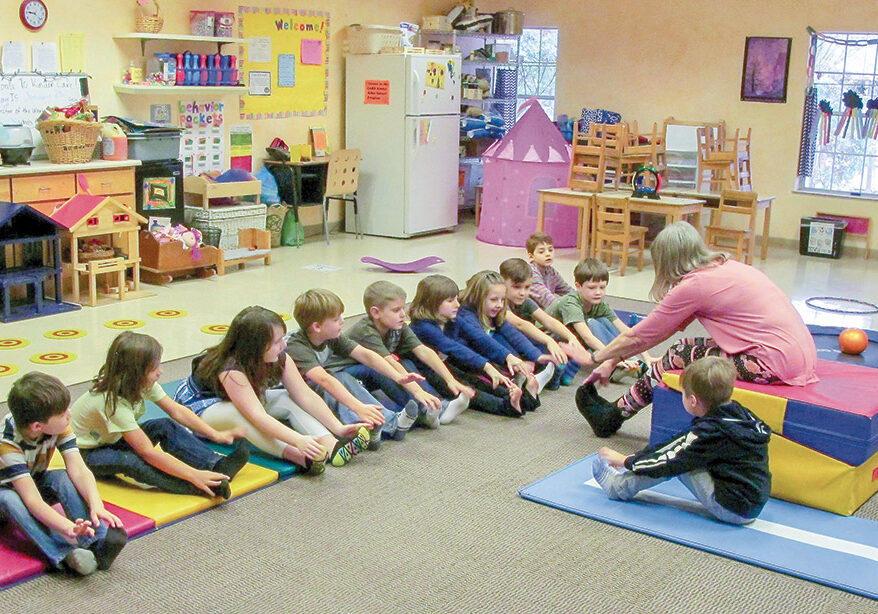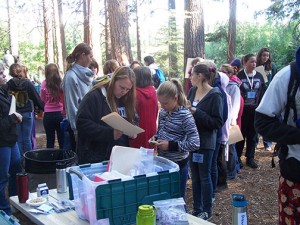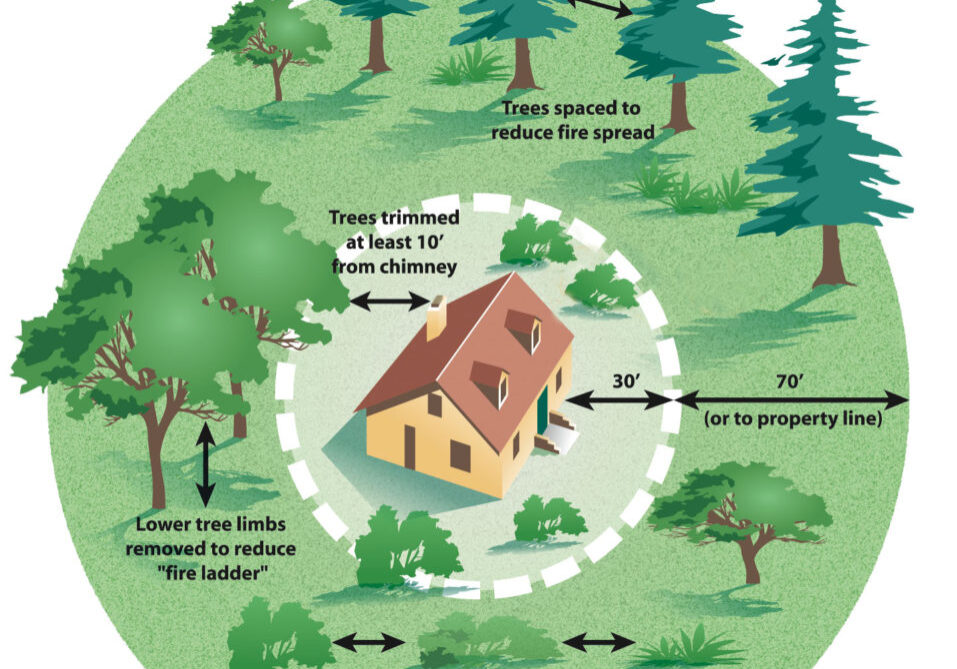Watching a sunset, seeing the faces of children and loved ones, or the simple view of flower-filled grassy knolls are all pleasures in life that some people risk losing when affected by progressive vision problems. Fortunately, there are organizations filled with caring people who have the important job of working to prevent blindness.
One of these organizations is the nonprofit Prevent Blindness Northern California (PBNC). PBNC screens at-All Postsrisk populations, including diabetics, the elderly, and those with a genetic family history of Glaucoma. Its screening programs detect conditions that need immediate medical attention, including macular degeneration, diabetic retinopathy, cataracts, or refractive errors.
Melinda Santos, director of Prevent Blindness Northern California’s Redding branch office, says preventative eye care is especially important in young children because often there are no warning signs of developing issues. Detecting vision problems in preschool is important because by the time a child reaches grade school, some vision disorders can be hard to treat.
PBNC screens 22,000 preschool children in Northern California. A study done by the National Eye Institute, American Academy of Pediatrics, and American Academy of Ophthalmology estimates 5 to 10 percent of preschool-aged children suffer from visual impairment, and about 25 percent of students in grades K-6 have vision problems that impede learning capacity. Half of all the cases of childhood blindness are preventable or treatable if they are detected early.
“We focus on preschoolers – we are the first line of defense … one out of ten has a vision problem,” Santos says. PBNC’s preschool programs were pioneered in 1966, and have seen over a million children in California to date. The program teaches head start workers and nurses screening methods to catch problems early on.
Certain eye problems in young children are obvious, such as when an eye is crossing or dropping, but it’s important for care professionals to detect eye problems that may show no obvious indicators early on. PBNC’s vision screening programs start at age 3. “Eye doctors can only do so much,” Santos says. “We work together because problems are easier to treat when they are developing.”
PBNC offers adult screenings as well. Many adults between the ages of 18 to 50 go without insurance and may not have a care provider, so PBNC tries to bridge that gap. Adults might need glasses or an eye exam to secure employment, pass physicals, or have their drivers’ licenses renewed.
Santos says the need for adult screenings has grown over the last couple years. In 2010, Santos had 50 adult applications in Redding, whereas within the last nine months she’s processed over 200 applications. “The dynamics have changed,” she says. “Many people are having trouble paying for daily living expenses, so they go without eye exams.” PBNC has volunteer optometrists from UC Davis and UC San Francisco to help with their two-day screenings, usually held twice a year, in spring and winter.
PBNC represents various agencies, and part of Santos’ job is to know which program an applicant may qualify for, depending on: age, whether a person currently wears glasses, has diabetes or vision concerns, has no insurance, or has a limited family income.
For more information or to see when PBNC’s next screening is held, visit http://www.eyeinfo.org or call (530) 243-0410.
Another organization that has been bringing awareness to individuals throughout Northern California is Lions Club. Its mission began in the 1940s, and since then hundreds of thousands of people have acquired glasses and vision screenings from Lions Club efforts and fundraisers.
Whether it’s guide dog services, collecting and distributing glasses to people in need, eye screenings, or funding to pay for eye surgery at its San Francisco center, Lions Club has helped over 30 million with vision care.
The club is passionate about children and vision, and conducts screenings at schools. “What leaves an impression on me is seeing a child having trouble in school who puts on glasses that change everything. It’s humbling to see,” says Tyler Spencer, a member of Enterprise Lions Club in Redding.
Spencer says he believes screenings are especially important for young children because not only may they help children do better in school, they can also help inform a parent who isn’t yet aware of their child’s eye problem. Dealing with color blindness is also better if caught at a young age. “The more knowledge you have, the better you are going to be,” Spencer says.
Diabetes can affect vision at any age, and can be prevented if diabetes is under control. Another Lions Club program is an annual summer camp for diabetic children, held at Lake McCumber near Shingletown. The camp helps children adjust to their situation and learn how to take care of themselves, and allows participants to share their similar experiences. Visit
http://www.lionsdiabeticcamp.org or call (530) 474-4896 for more information about the camp.
A “Bowl for Sight” Lion’s Club fundraising bowling tournament is being held Saturday April 6 at County Bowl in Redding, 2615 Bechelli Lane. Play nine-pin no tap, two games of Scotch doubles, and strike in frames 3-6-9. No experience necessary, come have fun! At this event everyone’s a winner, because all proceeds go to Lions Club sight efforts. Registration starts at 11am and bowling begins at noon; cost is $50/team or $25/individual. For more information: (530) 356-9588.
To learn more about the Enterprise Lions Club, visit http://www.enterpriselionsca.com or call (530) 221-4164.
Posted in: Community, Health & Nutrition
Comment Policy: All viewpoints are welcome, but comments should remain relevant. Personal attacks, profanity, and aggressive behavior are not allowed. No spam, advertising, or promoting of products/services. Please, only use your real name and limit the amount of links submitted in your comment.
You Might Also Like...

Silly, Healthy Birthday Breakfast
Birthdays mean cake and ice cream, right? And maybe a piñata full of candy? Sometimes birthdays can mean one big sugar rush. To get the next birthday in your house […]

Localicious: The Corn On Your Plate
Corn has been a staple grain of many cultures’ diets for centuries, with the earliest uses dating back to approximately 5000 B.C.E. Cultivated in an array of colors, yellow and […]

Movement Jumpstarts the Brain – Flipping the Learning Switch at Blue Oak School with S’cool Moves
“Our highest endeavor must be to develop free human beings who are able, of themselves, to impart purpose and direction to their lives.” Rudolf Steiner (1861-1925) Today, parents have choices […]

Love To Learn: Museums To Start The School Year
“Museum.” For some, this word piques excitement and interest. For many, it evokes bored childhood memories of hushed voices, slowly plodding steps, and the ever-constant scolding: “Don’t touch that!” If […]




